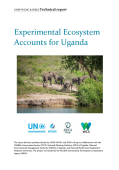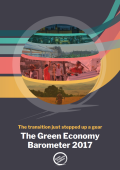
Every year, the Green Economy Coalition publishes the Green Economy Barometer, an analysis of the state of the global movement towards a fair, sustainable future. The Barometer tracks the transition, both celebrating the successes, and calling attention to challenges yet to be overcome. It contains key stats, facts, and highlights from the year 2017, and it casts an eye ahead to what the next twelve months have in store.
The Green Economy Barometer 2017 argues that the light on the global green economy horizon has brightened this year: markets are booming; new narratives are emerging; investment is flowing. Tipping points in energy, transport, and global leadership may well be arriving. But that same story looks different from the ground: young people need jobs; biodiversity is in crisis; and rural economies are being left behind.
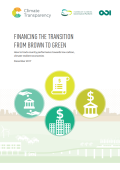
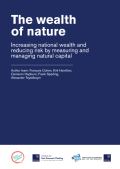
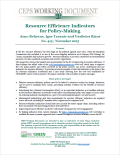
In the EU, resource efficiency has been high on the political agenda since 2011, when the European Commission first included it as one of the seven flagship initiatives in its Europe 2020 Strategy for “smart, sustainable and inclusive growth”. Resource efficiency is not only considered an environmental necessity, but also a political, economic and security opportunity.
This paper first stresses the benefits and opportunities for the EU of improving its resource efficiency. It then explains the added value of the www.measuring-progress.eu web tool, which aims to improve the way policy-makers and others involved in the policy process can access, understand and use indicators for resource efficiency. It provides practical examples of relevant indicators in the form of the EU Resource Efficiency Scoreboard and a case study showing how the web tool established by NETGREEN can be used in practice. The paper concludes with a number of policy messages.
